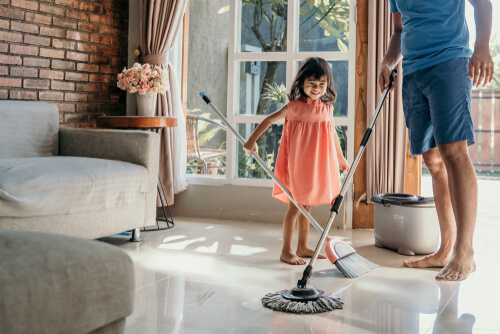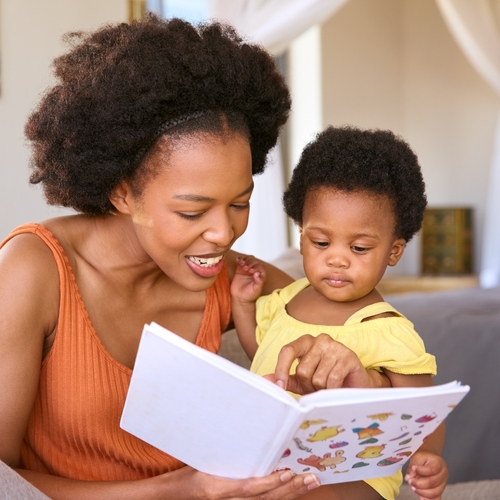
Table of contents
Table of contents
There is no manual on how to raise a child and every parent-child relationship is unique. Many parents ascribe to, or naturally fall into, particular methods of parenting.
Parenting styles can be controversial and you may be strongly for or against certain methods, based on your experience as a parent or teacher, or as a former child who was parented in that way.
Below is a brief introduction to some of the more well-known parenting styles. You might pick and choose aspects of different parenting styles to suit you and your child,
Traditional parenting styles
Many psychologists and sociologists have experimented and theorised on how different parenting styles affect children and teenagers. Diana Baumrind may perhaps be the most famous of these.
Dr Baumrind was an American developmental psychologist who researched extensively into parenting styles. She identified three distinct parenting styles and noted that children raised under each showed significantly different behaviours.
Authoritarian parenting
Authoritarian parenting is a strict and controlling parenting style, with little responsiveness to a child’s wants and emotional needs. Parents lay down strict rules, with children expected to follow them without question and receive punishment for disobedience. Children of authoritarian parents are expected to respect the authority of their parents and other influences, such as their teachers, unconditionally.
Authoritarian parents aren’t keen on positive reinforcement and their children are more likely to be punished for failings than praised for successes. Parents often put a lot of pressure on their children academically and control things like their diet, hobbies and what subjects they choose to study as they get older.
Pros of authoritarian parenting
- This type of parenting can push children to meet their full academic and career potential.
- Having a clear set of rules and boundaries can be beneficial for the child, as can a routine.
Cons of authoritarian parenting
- Lack of choice over their own lives negatively affect children’s well-being and their ability to make good choices, deal with failure and build resilience.
- Dr Baumrind found that children raised in this way are more likely to be stressed and depressed. This paper also notes a study in which authoritarian parenting was directly linked to low self esteem.
- This parenting style has been linked to narcissism, both grandiose and vulnerable.
Permissive parenting
The opposite of authoritarian parents, permissive parents encourage independence and choice, with value on positive reinforcement and supporting their child’s emotions. These parents don’t set or enforce rules very much and rarely discipline their children, sometimes acting like a guiding friend rather than a figure of authority.
Parents support their child’s choices and allow them to explore their own individuality and make their own mistakes. Children naturally learn by imitation and influence.
Pros of permissive parenting
- Permissive (and authoritative) parenting has been directly linked with higher self esteem (see link in ‘Cons of authoritarian parenting).
- Permissive parenting’s focus on emotional support can greatly enhance a child’s mental well-being.
Cons of permissive parenting
- Permissive parenting has been linked to anti-social behaviour (as has authoritarian).
- Lack of structure and clear boundaries can negatively affect the child’s confidence and sense of security.
- This parenting style can lead to difficulties at school and later at work if the child is not taught to respect authority figures.
- Letting children make their own mistakes without any guidance can have negative effects on their lives, particularly when they are teenagers and decisions such as whether to continue in education will affect their whole career.
Authoritative parenting

According to Dr Baumrind, this style of parenting is a healthy balance between authoritarian and permissive.
Authoritative parents respect their child’s independence and feelings as an individual, while putting a lot of time into nurturing them, teaching them things and talking through their feelings.
Authoritative parents have an approach of warmth and mutual respect, whereby their child knows their boundaries and the parents know theirs. They teach their children how their behaviours affect others.
Pros of authoritative parenting
- Dr Baumrind found that children responded and developed best with authoritative parenting, with a generally higher sense of confidence and overall happiness, better social skills and a deeper understanding and regulation of their emotions.
- Authoritative parenting has been directly linked to strong academic achievement.
- Children benefit from a balance between structure, responsibility and freedom to make some choices for themselves.
- Children receive plenty of guidance and constructive feedback but are not put under pressure.
- Better social and emotional development (read more).
Cons of authoritative parenting
- Authoritative parenting is difficult to apply in families with time or resource constraints, such as a single-parent family in which the parent works a lot, or families with several children.
Modern parenting styles
Since the turn of the century there has been a big focus on mental health. This includes parenting’s role in the mental health of their children.
Many parenting styles have sprung up on the internet. Though the ideas of them may have been around for decades, social media has increased their popularity.
Gentle parenting
Those who apply gentle parenting look to determine the emotional reason behind a child’s behaviour, rather than the behaviour itself. Behaviour is not ‘good’ or ‘bad’. The child is not punished, pushed or bound to any rules. The parent uses communication, empathy and emotional support at every turn.
Pros of gentle parenting
- Children feel seen, respected and emotionally validated.
- Rooting out the emotional cause behind bad behaviour can be extremely beneficial to a child’s well-being and support them to make good choices.
Cons of gentle parenting
- Lack of boundaries or consequences can result in children not respecting their parents or other authority figures. This can lead to difficulties for them socially, academically and in their future careers. It can also deny them the comfort and security that comes from having authority figures who they admire and respect.
- Children may not learn how to manage emotionally when things don’t go their way. They may question and fight against any occasion when they cannot have what they want.
- Teaching a child to consider their feelings above all else can cause problems for them and others. They may not develop good levels of empathy, tenacity or resilience, and therefore have poor friendships and academic/career outcomes.
Attachment parenting
Attachment parenting is when a parent maintains physical closeness with their baby and responds to their needs on demand. They may use baby carriers or slings to support this, co-sleep and breastfeed for as long as possible.
Pros of attachment parenting
- Attachment parenting offers children a strong sense of security and a solid bond with their parent.
- It can result in greater independence and confidence for the child.
- Breast milk offers nutritional benefits and emotional comfort; the World Health Organisation recommends breastfeeding for two years and beyond.
Cons of attachment parenting
- If you are exclusively breastfeeding and not pumping or bottle feeding in the first six months, it can be difficult to ever be apart from your baby or share childcare with your partner.
- Bed sharing can be a risk factor for SIDS in children under a year old.
- It can be difficult to apply attachment parenting if you have two or more children.


